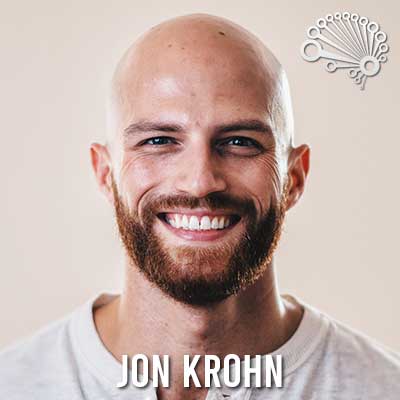(00:05):
This is Part 1 of a series of Five-Minute Fridays on Whether Caffeine Diminishes Productivity.
(00:27):
Like many working adults in the West, I have been a regular coffee drinker. For years now, drinking a couple cups of coffee every morning has been an indispensable habit — I couldn’t imagine how awful and tired I’d feel through the day if I didn’t get my caffeine fix.
(00:44):
Increasingly, however, and assisted by my daily mindfulness practice (check out episodes 434 and 436 for my tips and tools on that), I wondered whether coffee might paradoxically be stifling my productivity. On the one hand, I knew for sure that if I didn’t have my morning coffee, I’d be an absolute wreck; on the other hand though, I suspected that much of the time in the hours immediately after my morning fix my mind was racing off to task-irrelevant thoughts and in the hours before bed I felt often absolutely physically and mentally exhausted, couldn’t even read for a leisure.
(01:25):
Along with those thoughts derived from mindful awareness, there were three pieces of information that were weighing on me: First, my friend James Clear who wrote a New York Times #1-bestselling book called Atomic Habits and is the most productive person I’ve ever met, bucks the trend of my peers and doesn’t drink caffeine at all. He starts his day with a tall glass of water and immediately sets to work on his most important task for the day. So the most productive person I personally know doesn’t drink coffee. Hmm.
(02:01):
Okay, so not drinking coffee works for him. But what if I’m wired differently and coffee is great for my productivity? Well, that brings me to my second piece of information. While I can’t objectively compare my on-the-job productivity in any meaningful way to, say, the Chief Data Scientists at other similarly-sized tech companies, there is one time in my life where I can objectively compare my productivity with a large sample of people: that’s when I was an undergraduate student.
(02:35):
When I was studying my bachelor’s degree, I was extremely focused and productive throughout the academic years. In four years of college, I never missed a single lecture, a single laboratory exercise, a single page of assigned reading, or a single assigned textbook question. At my graduation ceremony, I had not only a higher grade-point average relative to everyone on my particular program, but I was recognized for having the highest GPA of every single student across the university. That’s a pool of over 2200 students in my graduation year — many of them smarter than me, I’m sure of it — but I was able to be uniquely focused and productive. And guess what? During college, over the course of that entire four-year stretch of extreme productivity, I did not consume a single cup of coffee or tea. I was caffeine-free.
(03:23):
All right, so not only is the most productive person I know caffeine-free but a time in my life where I can objectively say that I was exceptionally productive, I too was caffeine-free. The third piece of information I have is the most recent and it’s pretty random. A few weeks ago, YouTube recommended to me a popular video on something like “top tips to study ten hours a day without burnout”. It was in my feed for only a moment and I couldn’t find the exact video again by searching, I just couldn’t, but as my mouse hovered over the thumbnail in my YouTube feed, I caught a glimpse of one of the presenter’s top study tips written down on a whiteboard: No Caffeine.
(04:06):
On top of the experiential evidence of how my mind feels while on caffeine and the two long-standing pieces of information on productivity I already had, that random, split-second event on YouTube tipped the balance for me. I was instantly committed to running an experiment on myself. I went from habitually drinking at least two cups of coffee every day for countless years to deciding that I’d start slowly weaning myself off of coffee and seeing what happens.
(04:37):
Conveniently, going back to 2016, I have a daily record of a few dozen habits that I track. One of those habits is the number of cups of coffee. Another is the number of pomodoros — these are 25-minute sessions of uninterrupted, deeply focused work (you can check out episode 456 for more detail on the pomodoro productivity technique). My hypothesis going into the experiment was that my productivity — as demonstrated by the number of pomodoros I complete in a given workday — would be higher on no-coffee days than on coffee days.
(05:16):
If you can’t wait until next week’s Five-Minute Friday to hear or see the experiment results, you can check out a Jupyter notebook of data, a boxplot, and a statistical significance test at jonkrohn.com/coffee. During next week’s episode, I’ll go through the data, the code, and the results in that Jupyter notebook in detail.
(05:38):
All right, until then folks, keep on rockin’ it out there and catch you on another round of SuperDataScience very soon.



